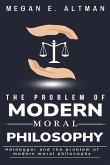A set of basic principles that guide a coach's behavior in practical situations" (pp. 12.3-12.4) is known as a coaching philosophy (Hogg, 1995). A coaching philosophy is not the offensive or defensive strategies which the coach ascribes to during competition. How athletes are treated, a coach's leadership style, and the intricacies of the coach-athlete relationship more closely resemble a coaching philosophy. Principles, values, and beliefs of the coach underpin a coaching philosophy (Hogg, 1995). Having a well-developed coaching philosophy provides program direction, guides in decision-making, reduces chances of surrendering to external pressures, and increases the likelihood of success (Martens, 2012). Coaching philosophies are formed over many years and in many different ways, starting with personal experiences as an athlete (Wootten, 2003). Hogg (1995) recommends a three-step approach to developing a coaching philosophy: 1) create opportunities for a greater self-awareness as a coach and person, 2) determine a coaching ideology, and 3) be actively prepared to test out the philosophy. Self-reflection is a necessary part of developing a coaching philosophy. Motivations to coach must be examined by the coach to determine the overarching aims of the program. Investigating one's values framework will help solidify a coaching philosophy that will purposefully direct consistent coaching practice and behavior (Lyle, 2002).


![Business Success [microform]: What It is and How to Secure It: a Lecture Delivered Before the Toronto Young Men's Christian Association Business Success [microform]: What It is and How to Secure It: a Lecture Delivered Before the Toronto Young Men's Christian Association](https://bilder.buecher.de/produkte/65/65560/65560162m.jpg)





